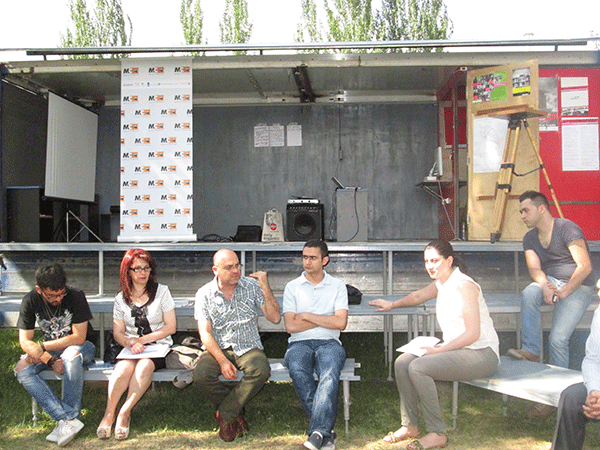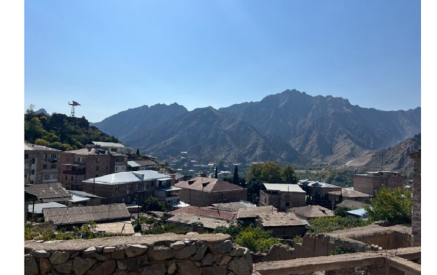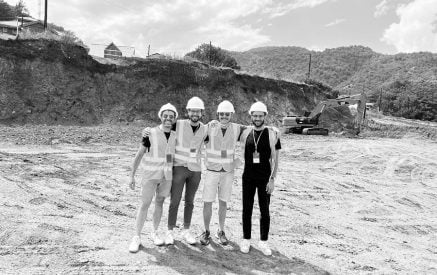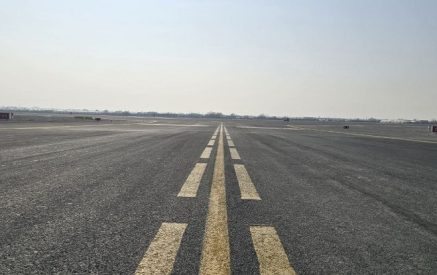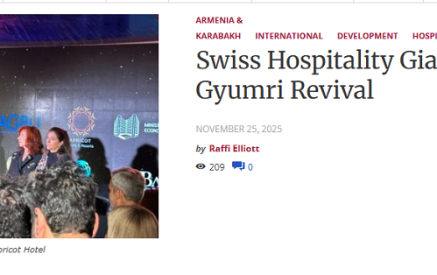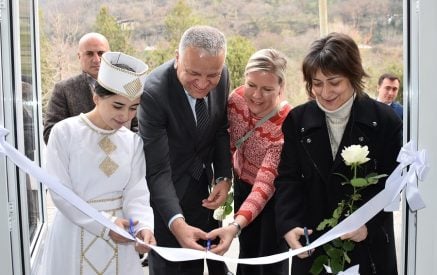Yesterday, during the open-air discussion entitled “Employment, Migration and Youth Issues in Gyumri” organized by the initiative of the Media Center in the park of Berlin Art Hotel in Gyumri, the lecturer of YSU and ethnographer, Agassi Tadevosyan, speaking about the educational, economic and other reasons of migration, stated remarkable facts, “If earlier people were applying for migration mainly to solve the family survival problems, but now, over the time, those who were going and coming were seeing that there are more opportunities outside for children’s future, just for them, because many of them were professionals, even let’s say, craftsmen, qualified craftsmen, who had problems with professional growth, development and realization. There was a moment and it was after 1998, it was the beginning of an approach when people were viewing migration as a way of human development, in other words, they stopped seeing the future of their children in Armenia and were seeing in the countries where there was a greater educational opportunity, health care access, and a better life duration, and most importantly, the human abilities and skills development opportunities were greater, and the possibility of realizing them, the so-called making career, was great. Therefore, a new wave arose, and a greater number of qualified specialists began to flee from Armenia. I myself have been in a variety of Armenian residencies, including in the CIS countries of the former Soviet Union and beyond the CIS countries, in the quotation marks, in far abroad. For example, I found myself in a strange amazement in San Francisco, because I met very many people there, the young age Armenian guys, ranging from about 25-27 years to 45-50 years, who were working in the highest paid and most prestigious high-tech campaigns. For example, I was told that 500 programmers emigrated from Armenia are working for the Microsoft company, some of which already have citizenship, the others are in the process of receiving the status. There were people who had private offices, and established businesses. They did not have the problem of coming back anymore.” According to the lecturer and ethnographer, the educational migration is mostly spread. Armenia’s education system is gradually losing its qualities from the perspective of international competitiveness, in other words, the students do not see market in Armenia where later they can be realized as a specialist.
Armenia’s universities no more provide the education and knowledge to go out into the international market, and this becomes the cause for educational migration. According to the ethnographer, the young people educated in abroad are again seeking a way to return abroad. Agassi Tadevossyan illustrated the example of young doctors, who are educated or trained abroad, returning Armenia and encountering the corruption and acquaintance-friendly problems in the health sector, abandon Armenia disappointedly. As a result, the Armenian citizen with serious health problems cannot be treated in Armenia. According to the ethnographer, migration has become hereditary. “Recently, I have conducted a research, if you speak with people in villages and in towns, especially among young people, in some sense, migration has become a hereditary phenomenon, even a cultural phenomenon, and it has become a routine practice. I have often heard that in the villages, especially in the villages of Shirak, the migrants, I mean the seasonal migrants, or, as people would say, the migrant laborers, say that they are like migratory birds, and there is an instinct in them, when the spring comes, they should flee, because this practice has been formed in them over the years that they should solve their survival problems through migration, and it is also transferred from fathers to sons. I have been in the families, in which, let’s say, several generations are going together. I have met a family, in which the grandfather with his children and grandchildren, three-generation men from this family, at the same time was going to a migrant labor. It becomes a strategy, a strategy for taking care of the family’s routine needs. On the one hand, this solves a problem for the survival, on the other hand, it turns into a habit, which does not allow a person to search for an alternative to support the family, and an opportunity to take care of educational matters of their children locally. Migration does not give place for people to think about what to do. We have reached the situation, when the government announces migration as a strategic resource of economy. See, for example, the Chairman of our National Security Council, Arthur Baghdasaryan, went on special negotiations, because people and families were actually facing a collapse, when Russia adopted a new law regulating migration, and people’s free access to Russia was blocked in a moment.” The latter warns that a deficit of qualified human capital is created in Armenia. “If the country is developing, it must have a critical limit. It is approximately 27-31 percent as stated by many experts, and if this percentage is broken among the population, the society is having a deficit in human capital, and it appears in the status of countries that are in need for permanent foreign investments, I mean not only financial investment, but investment for qualified human professionals. I also feel it very well in my environment, if we enter the Armenian universities, you would see that the high quality professors are thinking about giving lectures in western universities, they are in search,” mentions the ethnographer sadly.
Nune AREVSHATYAN



















































